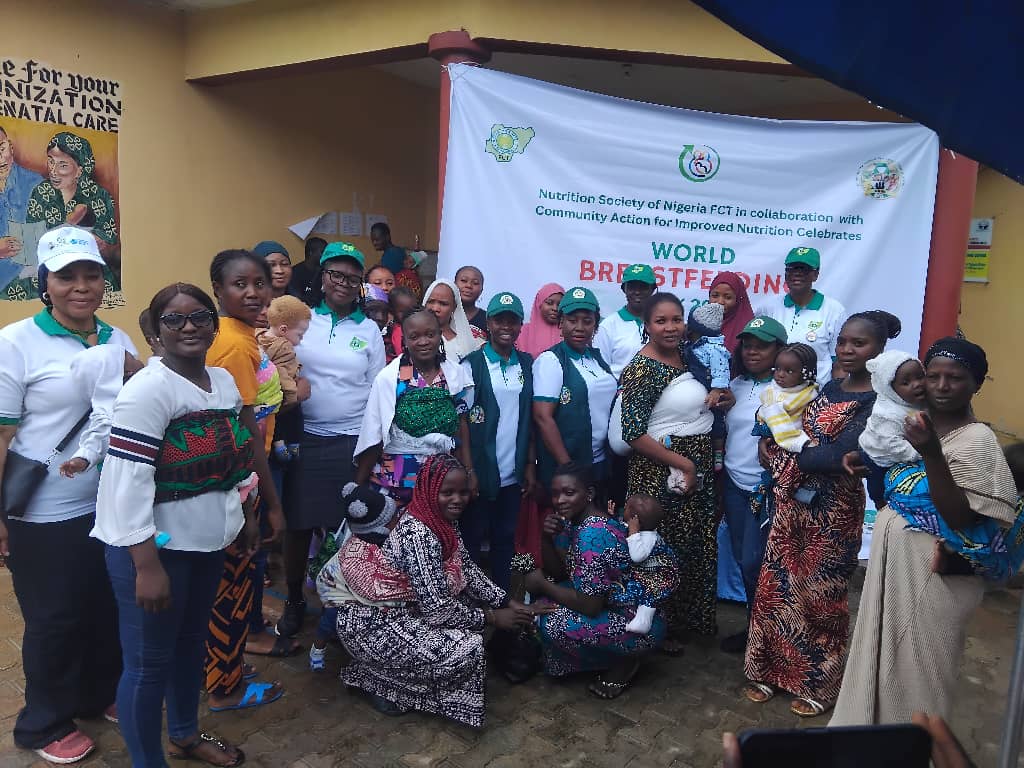Nigeria records 22.5% decline in early initiation of breastfeeding

By Emmanuel Elebeke
Nigeria has recorded a significant decline in early initiation of breastfeeding—defined as breastfeeding within the first hour of birth—falling from 58% to 35.5%, according to data from the latest Nigeria Demographic and Health Survey (NDHS).
This was disclosed by Mrs. Ezeh Ngozi Nnenna, Deputy Director of Nutrition at the Federal Capital Territory (FCT) Primary Health Care Board, during a breastfeeding awareness campaign held at the Apo Resettlement Primary Healthcare Centre in Abuja.
While the Multiple Indicator Cluster Survey (MICS) reflected an increase in exclusive breastfeeding rates—from 29.1% in 2016 to 38.1% in 2021—NDHS data showed fluctuating trends, with exclusive breastfeeding rates hovering around 28.9%.
Mrs. Ezeh expressed concern over the decline in early initiation, emphasizing the need for continuous awareness and support that goes beyond the annual World Breastfeeding Week. She urged stakeholders to understand and interpret survey data carefully to inform evidence-based interventions.
“Breastfeeding is not a one-week affair. We need continued sensitization, capacity building, and awareness creation at all levels. Health workers must be equipped with accurate information and counseling skills to support mothers and communities,” she said.
She identified several challenges affecting breastfeeding practices in Nigeria, including limited support, cultural perceptions, institutional constraints, and socioeconomic factors. Mrs. Ezeh called on the government and stakeholders to strengthen support systems and ensure health workers are adequately trained.
To expand outreach, she highlighted a multi-channel approach involving: Broadcast media (radio, TV), Social media platforms (e.g., WhatsApp), Print materials (flyers, newspapers), Billboards and Community-based initiatives such as development committees, volunteers, and outreach programs in churches, markets, and farms.
“The goal is to leave no one behind in promoting this life-saving practice,” she added.
World Breastfeeding Week, celebrated annually from August 1 to 7, promotes breastfeeding as essential for sustainable development and improved health outcomes for mothers and children. This year’s campaign focuses on creating supportive environments and systems to make breastfeeding a societal norm.
In her remarks, Retired Major Edith Oghenobo Chinemelem, Chairperson of the Nutrition Society of Nigeria, FCT Chapter, emphasized the importance of community mobilization and education in improving child nutrition and breastfeeding rates.
“This event is part of a broader effort to engage communities and educate women on early initiation, exclusive breastfeeding, and complementary feeding,” she said.
She acknowledged progress in breastfeeding education while noting that challenges persist, particularly in underserved areas. Strategies to address these gaps include:
Localized radio and TV content, Engagement with religious institutions and Collaboration with community leaders and influencers.
“We are using every channel—from pulpits to airwaves—to ensure no mother is left uninformed,” she added.
Dr. Ogechi Akalonu, Nutrition Technical Lead at the National Primary Health Care Development Agency (NPHCDA) in the FCT, stressed the need for ongoing support and education.
“Breastfeeding is not just a health issue—it’s a national development priority,” she said.
Dr. Akalonu described breast milk as the ideal food for infants, supporting immunity, cognitive development, and emotional bonding. She also noted its environmental and economic benefits.
She pointed out that common barriers such as misinformation, cultural myths, and inadequate support systems must be addressed through continuous training for health workers and public education.
“Every day should be a day to promote breastfeeding. Men also have a role to play by supporting breastfeeding practices at home and in the community,” she noted.
According to her, a well-breastfed child is healthier, smarter, and better positioned to contribute meaningfully to national development.
In a concluding remark, Okoli Mmesoma, Programs Assistant at the Civil Society Movement (CSM), emphasized that “breastfeeding is everybody’s business”, calling for stronger community-based education and support.
The post Nigeria records 22.5% decline in early initiation of breastfeeding appeared first on Vanguard News.







